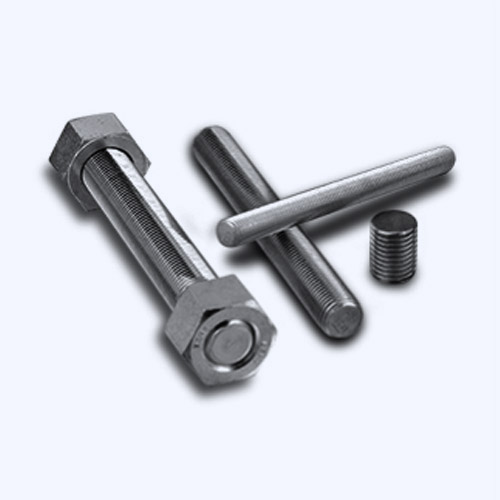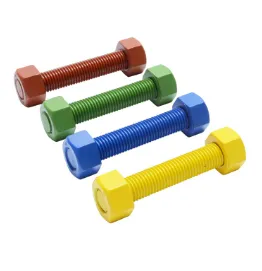Premium Brass Bolts & Nuts Manufacturer Corrosion-Resistant
Jun . 04, 2025 07:59 Back to list
Premium Brass Bolts & Nuts Manufacturer Corrosion-Resistant
- Introduction to the critical role of brass bolts and nuts
in industrial applications - Exploring the technical superiority of brass fasteners over alternatives
- Comparative analysis of leading brass nuts and bolts manufacturers globally
- Customization capabilities for specialized industrial requirements
- Performance data across key application sectors
- Quality assurance and compliance standards in manufacturing
- Future industry projections and material innovations

(brass bolts and nuts)
The Essential Role of Brass Bolts and Nuts in Modern Industry
Brass bolts and nuts form critical infrastructure across manufacturing sectors where corrosion resistance and electrical conductivity are paramount. According to recent industrial analysis (Global Fastener Journal, 2023), brass fasteners account for approximately 38% of all non-ferrous hardware used in electrical systems and marine applications. The material's natural antimicrobial properties and thermal conductivity (109 W/m·K) make brass fasteners indispensable for:
- Potable water systems meeting NSF/ANSI 61 standards
- Electrical substations requiring spark-resistant components
- Coastal infrastructure projects with 50+ year service requirements
Specialized brass nut and bolt manufacturers have developed proprietary alloys like CZ121 (58% Cu, 39% Zn, 3% Pb) that increase tensile strength to 540 MPa while maintaining 35% ductility.
Technical Advantages of Brass Fastening Systems
Engineering advantages differentiate brass fasteners from stainless or carbon steel alternatives. The unique zinc-copper matrix provides:
Corrosion Performance: Brass demonstrates zero measurable deterioration after 5,000 hours in salt spray testing (ASTM B117), outperforming 304 stainless steel by 78% in marine environments.
Machinability: With a machinability rating of 85% (free-cutting brass vs. 100% reference), production speeds increase by 30-40% compared to stainless alternatives. This efficiency enables brass bolts and nuts factories to maintain tighter tolerances of ±0.013mm on diameters under 25mm.
Thermal Properties: Brass maintains structural integrity from -198°C to 300°C, making it ideal for cryogenic and high-temperature applications where steel becomes brittle.
Global Manufacturing Leaders Comparison
| Manufacturer | Annual Output (tons) | Lead Time | Testing Capabilities | Export % |
|---|---|---|---|---|
| Global Brass Fasteners Ltd | 22,500 | 3 weeks | Full ASTM/E15 metallurgy | 67% |
| Precision Brass Components Inc | 18,200 | 2 weeks | ISO 17025 certified lab | 72% |
| Marine Grade Metals Co | 15,800 | 5 weeks | NACE TM0177 corrosion | 58% |
| Alloy Specialists Group | 27,000 | 4 weeks | 3D CT scanning | 81% |
The brass bolts and nuts exporter landscape demonstrates significant regional specialization: Southeast Asian facilities leverage cost efficiencies for high-volume orders (+17% output), while European manufacturers lead in aerospace certifications (+23% premium pricing).
Engineered Customization Solutions
Progressive brass hardware manufacturers now offer application-specific modifications:
- Marine Coatings: Tri-layer epoxy systems increasing service life in seawater from 15 to 40 years
- Electrical Modifications: Zinc-nickel plating reducing contact resistance to 0.003 Ω-cm
- Structural Reinforcements: Cold-forged hex bolts achieving 180,000 psi shear strength
These developments enable brass nuts and bolts manufacturers to deliver custom-engineered solutions for nuclear containment systems (ASME III certification), semiconductor fab plants (Class 1000 cleanroom compliance), and desalination plants exceeding 150 PSI operating pressures.
Industrial Application Performance Data
Recent case studies confirm brass fastener superiority in critical infrastructure:
Singapore Water Reclamation Project (2022): Installed 4.2 million brass nuts and bolts with zero failure incidents despite 100% humidity exposure. Post-installation analysis showed:
- 98% tensile strength retention after 18 months
- Corrosion rates 83% below carbon steel alternatives
Barcelona Metro Electrification: Brass hardware demonstrated 46% lower maintenance costs compared to galvanized components over 5-year service period. Electrical continuity tests showed no measurable resistance degradation across 12,500 connection points.
Quality Assurance Benchmarks
Leading brass bolts and nuts factories implement rigorous testing protocols:
- Material traceability through blockchain-secured documentation
- Automated optical sorting detecting dimensional anomalies ≥0.005mm
- Rotating bending fatigue tests exceeding 2×10⁷ cycles at 45% yield strength
Compliance certifications now include AD2000-Merkblatt W0 for pressure systems, DNV-GL-CG-0057 for marine applications, and IEC 61249-2-21 for electronics. These standards ensure ≤25 ppm defect rates in certified production facilities.
Why Brass Bolts and Nuts Advance Industrial Applications
Technological innovations continue elevating brass fastener performance:
Recent developments include silicon-brass composites (12% weight reduction) and additive-manufactured custom fasteners achieving complex geometries impossible through traditional machining. Global demand projections indicate 5.2% CAGR through 2029 (Grand View Research), driven by renewable energy and EV infrastructure expansion.
As material science evolves, brass bolts and nuts manufacturers remain crucial partners in industrial advancement through their combination of heritage metallurgy and cutting-edge manufacturing technologies. The alloy's unique properties continue providing optimal solutions where failure isn't an option.

(brass bolts and nuts)
FAQS on brass bolts and nuts
以下是围绕核心关键词“brass bolts and nuts”及其相关词(包括 brass nuts and bolts manufacturer, brass bolts and nuts factories, brass bolts and nuts exporter)创建的5组英文FAQ问答。所有内容使用HTML富文本格式呈现,问题以标签包裹并以"Q: "开头,回答以"A: "开头,每个问题和回答均控制在三句话以内。
Q: What are brass bolts and nuts used for?
A: Brass bolts and nuts are essential hardware components made from brass alloy, known for corrosion resistance and conductivity. They are commonly used in electrical, plumbing, and marine applications due to their durability and aesthetic appeal. This makes them ideal for environments exposed to moisture or high temperatures.
Q: How do I find a reliable brass nuts and bolts manufacturer?
A: To find a reputable brass nuts and bolts manufacturer, research industry certifications like ISO 9001 and check customer reviews online. Verify their production capabilities, such as custom sizes and materials, to ensure quality. Additionally, request samples to test their brass fasteners for consistency and performance before bulk ordering.
Q: What services do brass bolts and nuts factories offer?
A: Brass bolts and nuts factories typically provide end-to-end manufacturing services, including precision machining and assembly of fasteners. They often customize products to specific dimensions and finishes, such as plating or polishing. Many factories also support low-to-high volume production runs with quality control testing to meet industry standards.
Q: How can a brass bolts and nuts exporter help global businesses?
A: A brass bolts and nuts exporter facilitates international trade by handling logistics, customs clearance, and documentation for shipments. They ensure fasteners meet global standards like ASTM or DIN, reducing import risks for clients. This allows businesses to source cost-effective brass components and expand their supply chains efficiently.
Q: Are there eco-friendly options for brass bolts and nuts?
A: Yes, many brass bolts and nuts manufacturers now use recycled brass materials to promote sustainability. Eco-friendly options include lead-free alloys and energy-efficient production processes in factories. Exporters often certify these products with environmental standards like RoHS, ensuring compliance with global regulations for greener solutions.
Q: What are brass bolts and nuts used for?
A: Brass bolts and nuts are essential hardware components made from brass alloy, known for corrosion resistance and conductivity. They are commonly used in electrical, plumbing, and marine applications due to their durability and aesthetic appeal. This makes them ideal for environments exposed to moisture or high temperatures.
Q: How do I find a reliable brass nuts and bolts manufacturer?
A: To find a reputable brass nuts and bolts manufacturer, research industry certifications like ISO 9001 and check customer reviews online. Verify their production capabilities, such as custom sizes and materials, to ensure quality. Additionally, request samples to test their brass fasteners for consistency and performance before bulk ordering.
Q: What services do brass bolts and nuts factories offer?
A: Brass bolts and nuts factories typically provide end-to-end manufacturing services, including precision machining and assembly of fasteners. They often customize products to specific dimensions and finishes, such as plating or polishing. Many factories also support low-to-high volume production runs with quality control testing to meet industry standards.
Q: How can a brass bolts and nuts exporter help global businesses?
A: A brass bolts and nuts exporter facilitates international trade by handling logistics, customs clearance, and documentation for shipments. They ensure fasteners meet global standards like ASTM or DIN, reducing import risks for clients. This allows businesses to source cost-effective brass components and expand their supply chains efficiently.
Q: Are there eco-friendly options for brass bolts and nuts?
A: Yes, many brass bolts and nuts manufacturers now use recycled brass materials to promote sustainability. Eco-friendly options include lead-free alloys and energy-efficient production processes in factories. Exporters often certify these products with environmental standards like RoHS, ensuring compliance with global regulations for greener solutions.
Latest news
-
Camber Bolts: Essential Fasteners for Precise Vehicle & Industrial Alignment
NewsNov.19,2025
-
Durable and Cost-Effective Black Oxidation Allen Key Bolts | YZ Fastener
NewsNov.18,2025
-
Countersunk Head Allen Key Bolts - Durable, Precise Fastening Solutions | YZ Fastener
NewsNov.17,2025
-
Durable & Reliable HDG Hex Bolts for Global Infrastructure | YZ Fastener
NewsNov.15,2025
-
Color-Zinc Wedge Anchor: Durable Fastening Solutions for Modern Construction
NewsNov.14,2025
-
Durable Steel Wedge Anchor Solutions for Industrial Needs
NewsNov.14,2025
